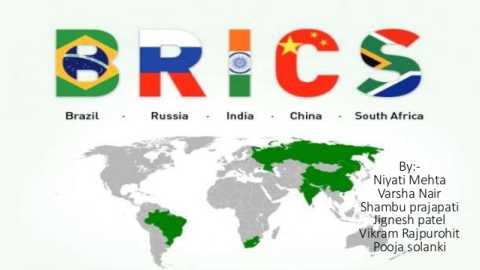
CAPE TOWN, June 1 (Reuters) - BRICS foreign ministers on Thursday asserted their bloc's ambition to rival Western powers but their talks in South Africa were overshadowed by questions over whether Russia's president would be arrested if he attended a summit in August.
South Africa's Foreign Minister Naledi Pandor said her country was mulling options if Vladimir Putin, the subject of a war crimes arrest warrant issued by the International Criminal Court (ICC), came to the planned BRICS summit in Johannesburg.
As a member of the ICC, South Africa would theoretically be required to arrest Putin, and Pandor was bombarded with questions about that as she arrived for a first round of talks with representatives from Brazil, Russia, India and China.
"Our government is currently looking at what the legal options are with respect to this matter," she told reporters.
"The answer is the president (Cyril Ramaphosa) will indicate what the final position of South Africa is. As matters stand an invitation has been issued to all (BRICS) heads of state," Pandor said.
Putin has not confirmed his plans, with the Kremlin only saying Russia would take part at the "proper level".
The ICC accused Putin in March of the war crime of forcibly deporting children from Russian-occupied territory in Ukraine. Moscow denies the allegations. South Africa had invited Putin in January.
In public opening remarks before their private talks, the foreign ministers of Brazil, Russia, India and South Africa and a deputy minister from China spoke in similar terms of their bloc's aspiration to provide leadership in a multipolar world.
'SYMBOL OF CHANGE'
"Our vision of BRICS is for our partnership to provide global leadership in a world fractured by competition, geopolitical tension, inequality, and deteriorating global security," said Pandor.
India's Subrahmanyam Jaishankar spoke of the concentration of economic power which he said "leaves too many nations at the mercy of too few", and of the need to reform global decision-making including by the United Nations Security Council.
"Old ways cannot address new situations. We are a symbol of change. We must act," he said.
Russia's Sergei Lavrov accused Western powers of using sanctions against his and other countries as an instrument of colonialism and to unfairly suppress rivals in the global power struggle.
Once viewed as a loose, largely symbolic association of disparate emerging economies, BRICS has in recent years taken more concrete shape, driven initially by Beijing and, since the start of the Ukraine war in February 2022, with added impetus from Moscow.
Among other initiatives, the bloc launched a New Development Bank in 2015, though that has stopped funding projects in Russia to comply with sanctions imposed by Western countries following the invasion of Ukraine.
"We will also explore opportunities for de-risking our BRICS institutions in the current financial landscape," Pandor said in her opening remarks, without elaborating.
BRICS leaders have said they are open to admitting new members, including oil producing countries -- an expansion likely to be on the agenda of the ministers' two-day gathering in Cape Town.
Iran's Foreign Minister Hossein Amir-Abdollahian and his Saudi counterpart Prince Faisal bin Farhan Al Saud were both present in Cape Town to participate in the BRICS meeting, which continues on Friday.
Their two countries, along with Venezuela, Argentina, Algeria and the United Arab Emirates are among those that have either formally applied to join BRICS or expressed interest, officials said.




